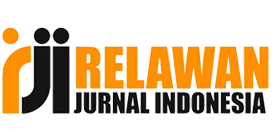Protection of Communal Intellectual Property as the Identity of Indigenous People: Comparative Practice of the Roles of Indigenous Peoples of Indonesia and Vietnam.
Abstract
Keywords
Full Text:
PDFReferences
Ahmad M. Ramli, et all, 2018, Kekayaan Intelektual Pengantar indikasi Geografis, PT. Alumni, Bandung.
Direktorat Perlindungan dan Kesejahteraan Masyarakat Kementerian Perencanaan Pembangunan Nasional/ Badan Perencanaan Pembangunan Nasional, 2013. Masyarakat Adat di Indonesia: Menuju Perlindungan Sosial yang Inklusi, PPN/Bappena, Jakarta.
Maya Ruhtiani, Perbandingan Perlindungan Hukum Hak Kekayaan Intelektual Komunal Antara Indonesia dan China, Jurnal Ilmiah Universitas Batanghari Jambi, Volume 22 No.2, Juli 2022.
Msc. Ta Thi Kieu Anh, Management Of Biodiversity Conservation And Access Genetic Resources In Vietnam, Nature and Biodiversity Conservation Agency Vietnam Environment Administration.
Muthia Aprianti et.all, Kebudayaan Indonesia di Era Globalisasi terhadap Identitas Nasional Indonesia, Edumaspul Jurnal PendidikanVolume 6 No 1 Tahun 2022, Universitas Pendidikan Indonesia.
Nguyen Kim Dung, Intangible Cultural Heritage Safeguarding System in Vietnam, Expert Ministry of Culture and Information.
Robiatul Adawiyah dan Rumawi, Pengaturan Hak Kekayaan Intelektual Dalam Masyarakat Komunal Di Indonesia, Repertorium: Jurnal Ilmiah Hukum Kenotariatan Vol.10 No.1 Mei 2021.
Simona Bustani, “Urgensi Pengaturan Ekspresi Budaya (Folklore) Masyarakat Adat”, Jurnal Hukum Prioris, Volume 2, Nomor 4, Februari 2010.
Soejono Soekanto, 1982, Legal Research Understanding, UI Press, Jakarta.
Trong Binh VU dan Duc Huan DAO, Geographical Indication And Appellation Of Origin In Vietnam: Reality, Policy, And Perspective, Hanoi, 2006.
United Nations Conference On Trade And Development, Towards An Effective And Practical Verification And Transparency Mechanism On The Utilization Of Genetic Resources And Associated Traditional Knowledge In Viet Nam’s Intellectual Property System,2020.
Yance Arizona, Mendefinisikan Indigenous Peoples di Indonesia, https://yancearizona.net/2014/06/18/new-york-2014-mendefinisikan-indigenous-peoples-di-indonesia/.
Zainul Daulay, 2011, Pengetahuan Tradisional Konsep, Dasar Hukum, Dan Praktiknya, PT Raja Grafindo Persada, Jakarta.
DOI: http://dx.doi.org/10.30652/ml.v7i1.7952
Refbacks
- There are currently no refbacks.
Copyright (c) 2023 Yulia Nizwana, Zainul Daulay, Ferdi Ferdi, Sukanda Husin
Melayunesia Law has been indexed by:
|
















